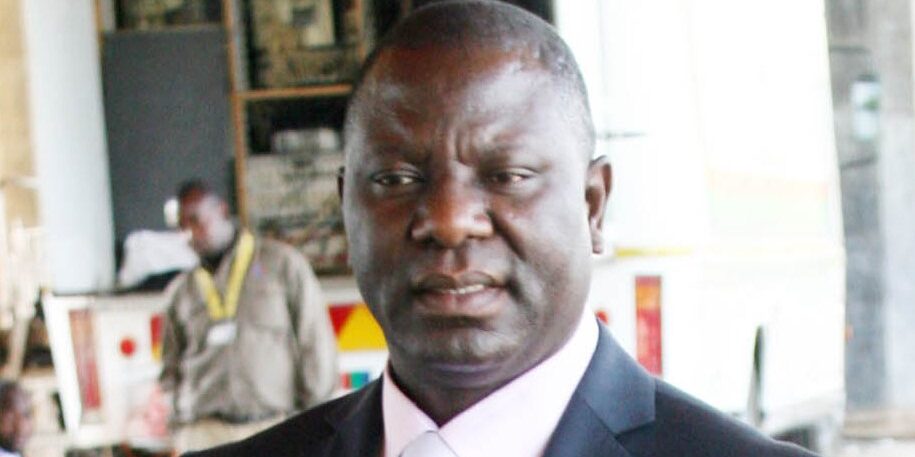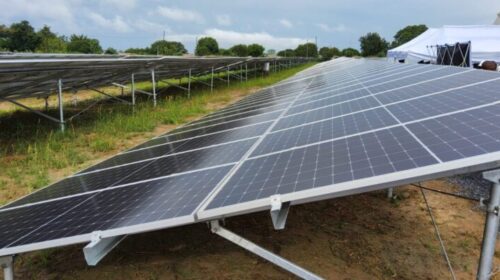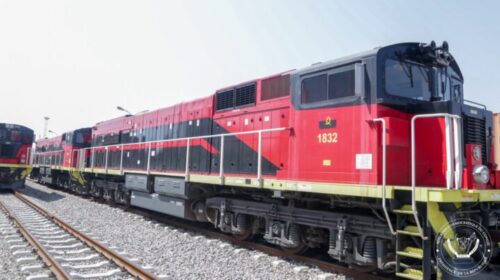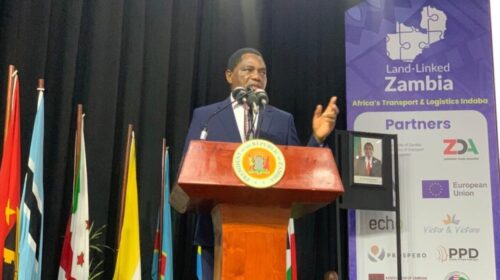The first 100 days. Economist Oliver Saasa offers advice to the new Administration- Zambia
The country’s national election is just days away, but regardless of one’s politics or confidence in a party’s campaign, one thing is certain: If Zambia follows a path that leads to long-term, sustainable economic recovery, each and every citizen will benefit.
Mining For Zambia asked leading economist Professor Oliver Saasa what needs to happen during the crucial first 100 days of a new administration to ensure that Zambia leaves the debt era behind, and chooses the road to economic recovery.
The potential for the mining industry to drive an economic recovery is definitely there. We’ve seen how, because of the mines’ linkages to other industries, the recent increase in tax revenues – which Treasury attributed largely to increased payments by mining companies – has stabilised the kwacha, even though it is still trading at a very high level to the dollar. The mining industry accounts for approximately 75% of export receipts, so we’re talking about an immense generator of foreign exchange. The sector is also Zambia’s major tax payer, and a contributor to employment generation and other economic activities with far-reaching multiplier effects.

So, the increase in the price of copper on the global market – and the subsequent increase in tax revenues from the mining sector – has really brought in some hope, and reaffirmed the fact that Zambia needs to look to this sector to realise long-lasting economic reform.
The Government has lamentably failed to support the sector through a hospitable policy environment, partly by failing to actively engage with the sector in a strategic manner. So-called “discussions” involve private sector operators providing all necessary information to the Government, with no reciprocal input. The Government says they believe in dialogue, but that’s as far as it goes. My view is that a new administration is the best time to revisit this, so we can put in place policies that will facilitate growth and economic transformation.
Which mining policies do you hope to see a new administration act on?
The mining fiscal regime must be reviewed within the first 100 days of a new administration, with a view to bringing it closer to global best practice. This will ensure that the country fully takes advantage of the strong copper price, by encouraging investment in this strategic sector which, in turn, allows mines to increase productivity.
Which aspects of the mining fiscal regime in particular need to be overhauled?
Currently, the most crippling and detested policy in Zambia’s mining sector is the fact that mineral royalties are not deductible, when they should be because a royalty is effectively a cost. As has been explained numerous times before, preventing mineral royalties from being deductible against corporate income tax equates to double taxation, which offends the basic principle of fairness in taxation. It also increases the effective tax rate so greatly that there is no possibility of making an adequate return on your investment. This is why we have seen investment dry up completely in recent years. It defies almost all logic that governs how mining companies invest.
“The mining fiscal regime must be reviewed within the first 100 days of a new administration, with a view to bringing it closer to global best practice.”
Another major issue with the current mining fiscal regime is the way that Mineral Royalty Tax (MRT) is structured. Currently, royalty rates jump up at certain price thresholds, which means that mining companies have no way of predicting how much tax they will have to pay. Rather than operating on a sliding scale – the way that PAYE does, whereby once you enter a new threshold you are taxed at a higher rate on the difference only – the higher tax rate is applied to the full amount of revenue generated by mining companies. In other words, we have reached a stage where the mining houses are not looking forward to a higher copper price, so there is very little incentive to invest in expansion projects. This is really very crippling.
Government attributed increases in revenue collection between January and May 2021 mostly to the mining sector, yet mining companies still appear reluctant to invest in the sector. Are you saying the current mining fiscal regime is to blame?
Yes. Both [FQM] Kansanshi and Lubambe have expansion projects that remain on hold. The high copper price has led to increased tax revenue, but the tax regime means that there isn’t a proportionate gain on both sides. The fact that these mines haven’t gone ahead with [their respective $1 billion] expansion projects tells us clearly that investors are not sharing in the recent windfall. The only way that we will see the growth that is needed to set an economic recovery in motion is if mining taxes strike a fair balance between the State and the investor.
Does “striking a balance” involve the mines paying “a fair share” of taxes to Government?
Absolutely. Investors must pay a fair share. But Government must also be cognisant of the fact that investors come to Zambia to harvest returns and dividends – that’s how business legally operates. You can’t have a situation where the fiscal tax regime is such that a high copper price on the global market discourages investment. Zambia’s mining tax regime has remained uncompetitive, and efforts by the PF Government to address this have remained elusive.
A competitive mining sector will, presumably, require plentiful – and competitively priced – power. What reforms to this sector do you hope to see a new administration enact?
The good news is that we have invested in Kafue Gorge Lower [a hydroelectric power station on the Kafue River in southern Zambia]. Only a portion of its power-generating capacity has been launched so far but, when it is fully launched, it will generate almost double the power supply that we currently have. We are gradually moving towards self-sufficiency, and once this plant is fully operational, we should be able to export power. Power generation is very important for Zambian industry, but efficient distribution and transmission are equally important.
A study that was commissioned several years ago laid out clearly the realities of the cost of electricity production and distribution, and whether tariffs being charged were a true reflection of costs. As it was not complimentary to Government – which owns 100 percent of ZESCO – the study was rejected. This study might now come out at the end of 2021. Either way, a study of the cost of service delivery for power must be released within the first 100 days of a new administration.
We must bring in the private sector to improve efficiency and make ZESCO attractive to investors; this is key. The private sector is fundamental because of the amount of investment required, but this also speaks to the need to significantly dilute the Government’s dominance in power distribution. High tariffs stem from politically-influenced decisions, and are effective for enabling Government dominance.
Zambia has enormous hydro potential! If we can harness this potential, Zambia can contribute to the region’s power pool.
Mining houses are extremely power-intensive – and electricity one of the largest cost items for all mines operating in Zambia – so a reliable supply of competitively-priced power would add to the jurisdiction’s competitiveness to outside investors, correct?
Absolutely. There is currently too much state involvement, which leaves room for corruption, and also interferes with corporate autonomy. An abundance of affordable electricity was, in fact, a major incentive for investors in the mining sector when it was privatised in the early 2000s. Ultimately, in the mining sector – and other sectors – power is power. It’s fundamental: for Zambia’s industrialisation, and for life!
Just as one has to accept that energy is fundamental, another one of the most important inputs in industry and the productive sectors is human resources. If you want human resources to be transformative and contribute to growth and development, you have to manage them through legislation that supports that cause.
Which legislation in particular?
The amendments made last year to the proposed Employment Code Act (ECA) did not go far enough. The legislation that relates to how we utilise labour is counterproductive, in particular, we have made labour too expensive by legislating a host of entitlements without paying attention to where the money to meet these ever-attractive conditions will come from. You must align the labour force’s working conditions to the capacity to service those conditions. There is currently a disjoint between attractive labour force conditions and the growth of companies employing that labour. Now, we have a situation where labour has become very costly for the average employer in Zambia.
Secondly, distribution of vital human resources in various sectors has not been done efficiently. One has to accept the realities of the Zambian economy. There are areas where you may require a certain skill-set or competency which may not be as readily available in Zambia. Certainly, where there are locals available, reserve those jobs for locals. But labour, just like anything, is a buyable and sellable good or service. To speak of it nationalistically is inappropriate.
Do your views on removing overly stringent restrictions on labour extend to reexamining some of the quotas that have been proposed in the draft Statutory Instrument on local content – for instance the requirement that all sectors procure a certain percentage of goods and services from within Zambia?
Indeed. Not recognising differences between sectors is inappropriate. Sector specificity is important, and legislation should not be straight jacketed. Competition drives the economy and requires input from outside. Industry protection can be examined on a sector-by-sector basis, but there’s no use trying to put a square peg in a round hole. For instance, attempting to manufacture trucks for the mining sector is a non-starter. The world is open! We can procure something like that at a fraction of the cost from outside Zambia. Being nationalistic about such matters will only shoot us in the foot. As [post-Communist era leader of China] Deng Xiaoping said, “It doesn’t matter if it is a white cat or a black cat – as long as it can catch mice.”
How does this extend to value addition and beneficiation – of copper or other raw materials?
Zambia is an import-intensive country. Generally speaking, we need to import raw materials – and, sometimes, labour – before we can produce for the domestic market. Value addition is important, and we should look to minimise the unnecessary import of goods and services. But internal growth requires external stimulus. We cannot allow a situation where people are not taking advantage of opportunities to attract investment to set up local businesses.
‘Local content’ essentially means taking advantage and beginning to look for what is available and can be supplied in-country, in a cost-effective manner. One of my professors at university said, many years ago: “Zambia grows literally everything, but you’ll be surprised to know that we have to buy groundnuts from outside the country. Neighbouring countries buy nuts from us, fry them, and then sell them in bags back to Zambia.” His conclusion was: “It’s high time Zambia began to fry her own nuts.”
That’s not to say that companies that are not based in Zambia can’t operate in Zambia. It’s a balancing act. The world is shrinking; we live in a global village. Legislation on local content should make it easy for Zambia to trade. This legislation has the power to either facilitate or to dampen investment, and economic recovery.
Regarding beneficiation, what could a new administration do to re-start Zambia’s smelters, and reposition the country as the smelting hub that it used to be?
Firstly, the attractiveness of the smelting business is linked to expansion in the mining sector. At the moment, we are producing under 900,000 metric tonnes of copper annually. Kansanshi has invested in a huge smelter, but it can only be cost-effective and productive if you have enough copper to feed it. Zambia’s reduced smelting capacity is due to the Government not having paid sufficient attention to the dynamics of processing. The bottom line is that more investment in the sector is needed to increase mineral production but, without the removal of mineral royalty non-deductibility and the restructuring of the Mineral Royalty Tax regime, this investment will not materialise.
With copper prices at a high, and demand for the metal rising, surely now is the time to expand production capacity to ensure that Zambian copper is part of the green revolution?
Exactly. If the price of copper continues at this trajectory – and we think it will, based on the green energy sector’s copper demands – we also need to expand production so that we can cash in on this good price. Without investment, we cannot expand – or even maintain – the level of production, and if we don’t do this at the same time as cashing in, we’ll discover that in the medium to long term, we will have lost out.
“If the price of copper continues at this trajectory, we also need to expand production so that we can cash in on this good price.”
What role could the recent mining tax related windfall play in addressing Zambia’s high debt levels?
Having a bit more money might help Zambia in macroeconomic terms, but the expense side of the equation demands that we reorient our expenditure patterns. One of Zambia’s biggest challenges is that, for the last several years, we have allocated a disproportionate amount of public resources to investments in road infrastructure – and much of our infrastructure investments are externally financed. At the moment, external debt servicing, combined with civil servants’ salaries, accounts for more than 90% of Government revenue in Zambia. We have to significantly scale down infrastructure development.
Many developing countries have policies in place ensuring that Governments do not borrow for consumption, and insist that all sovereign borrowing is for investment. Contrary to that logic, right now Zambia is borrowing a lot for consumption. Paying off some of our debt is the sensible economic thing to do with this windfall. It would open up opportunities for foreign direct investment, and create a more hospitable environment for growth and development, contributing towards the economic recovery we need.
We need to put in place a Debt Management Strategy during the first 100 days, which will prepare the ground for fruitful engagement with the International Monetary Fund (IMF).
Are there any other policy-related changes that you hope to see a new administration enact in the first 100 days?
Yes. When it comes to the mining sector, policy consistency and predictability is crucial if we are to realise a mining-led economic recovery in Zambia. Without a good, stable fiscal regime, we will not see long-term growth. Almost every year before the national budget is announced, a new mining fiscal regime emerges, and it makes planning for the future very onerous.
Whether we have a new administration or a fresh Government, they need to realise that we can’t benefit significantly from an industry that generates such a major proportion of export receipts without policy stability and predictability.
Broadly speaking, when it comes to the mining sector, we need to reboot, re-engage, and ensure that Government has the political will to work together with mining houses, recognising the true values of one another’s shared interests.
90 total views , 1 views today





